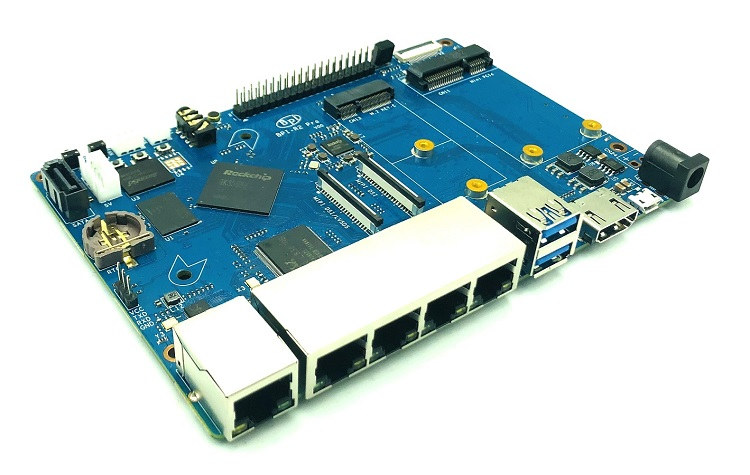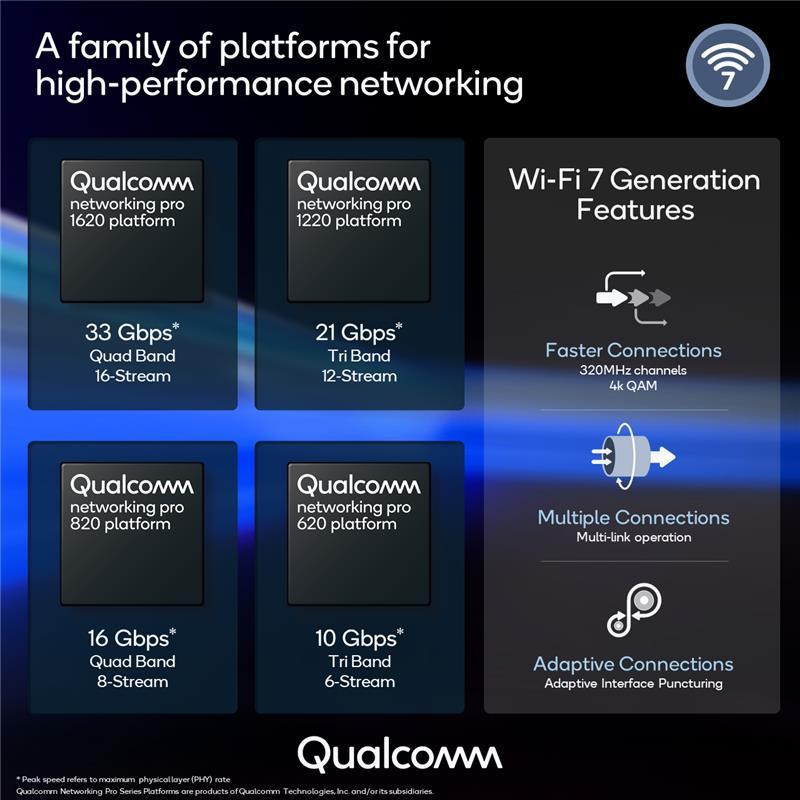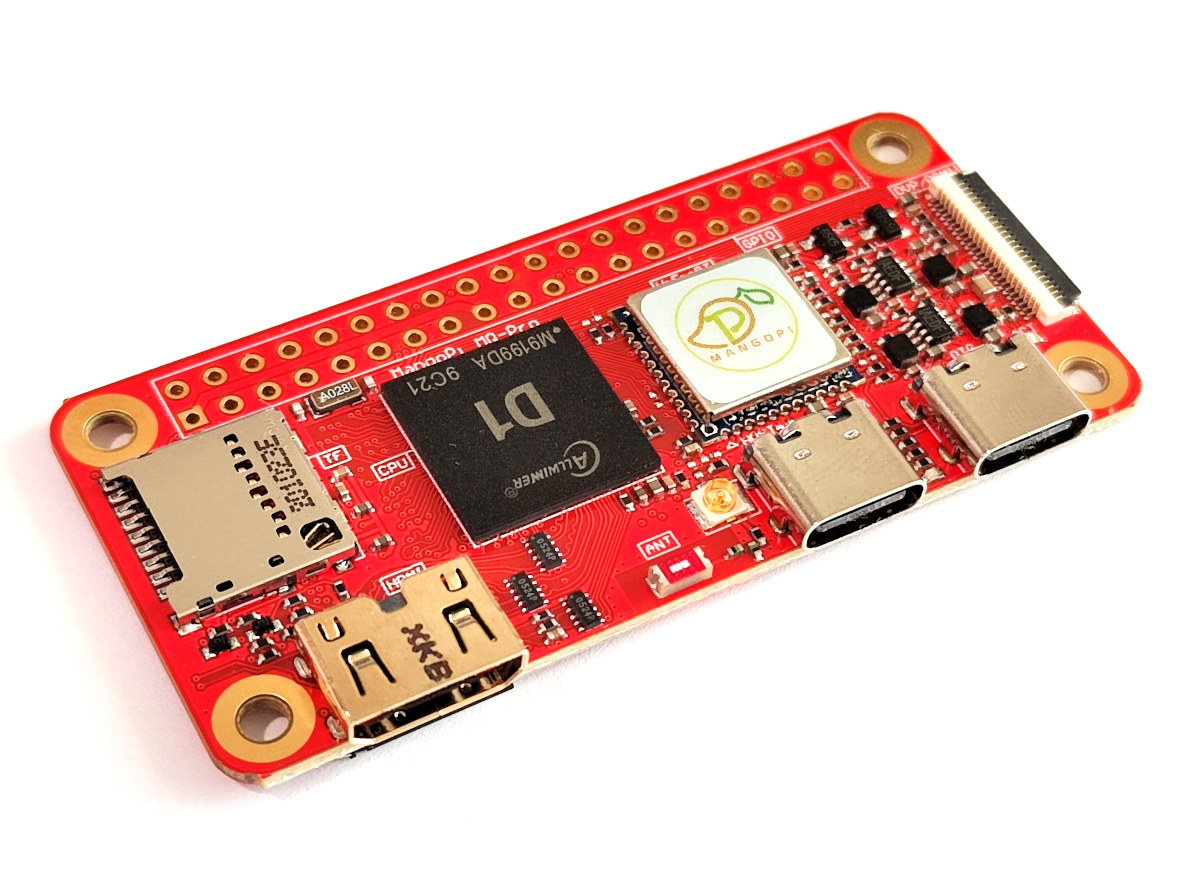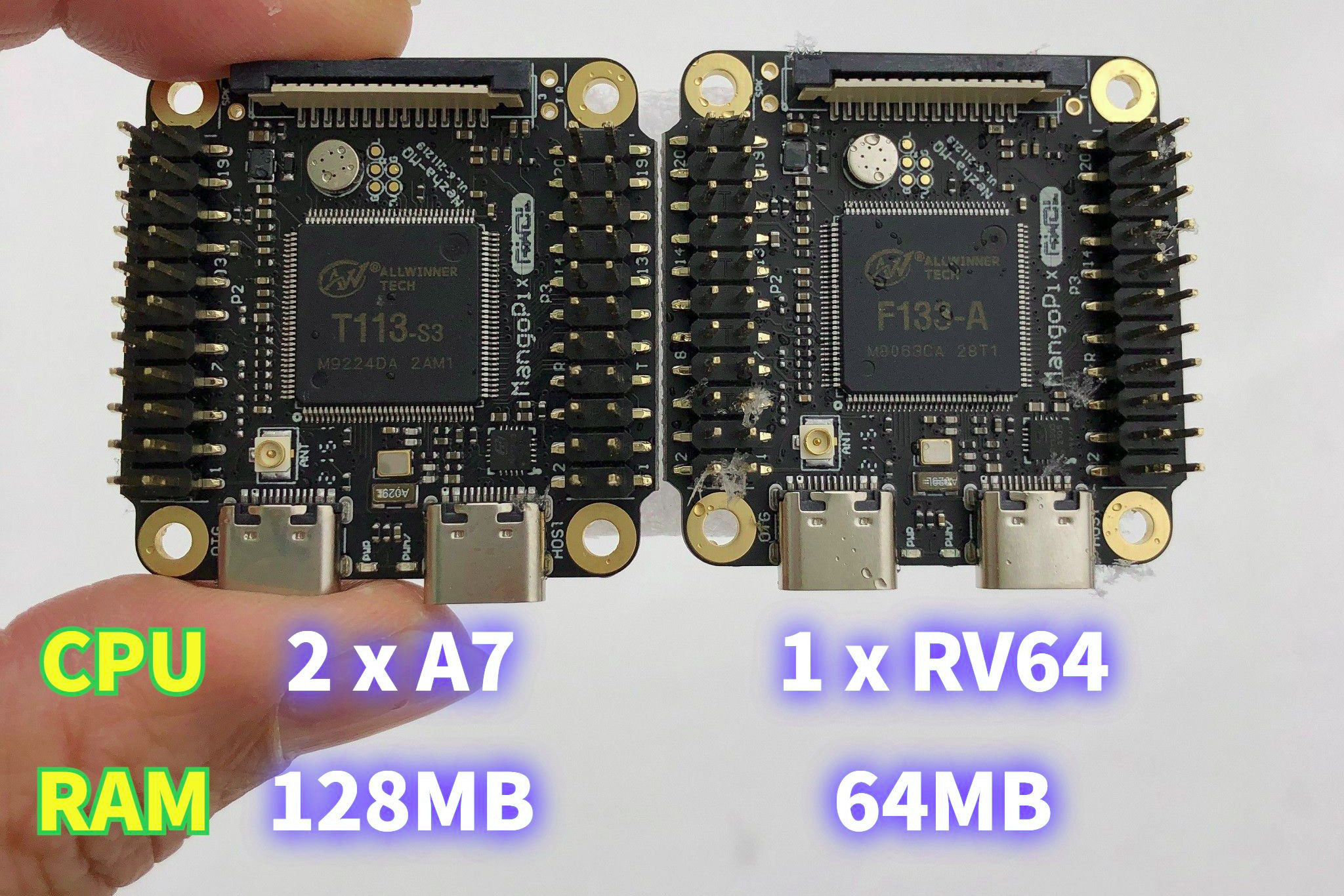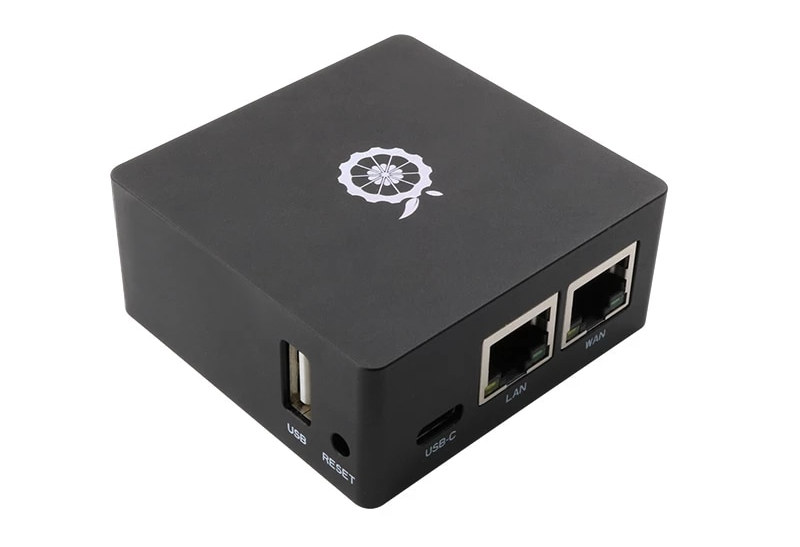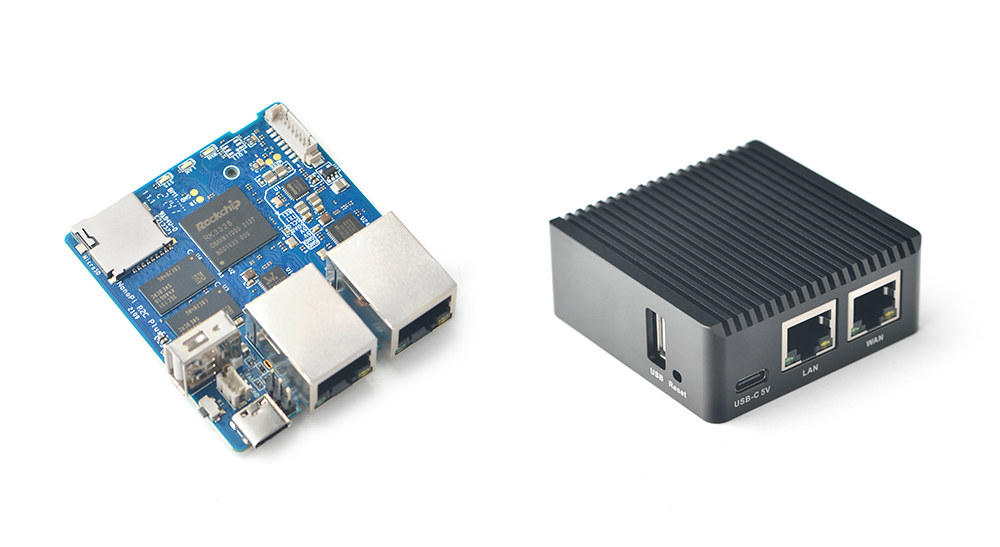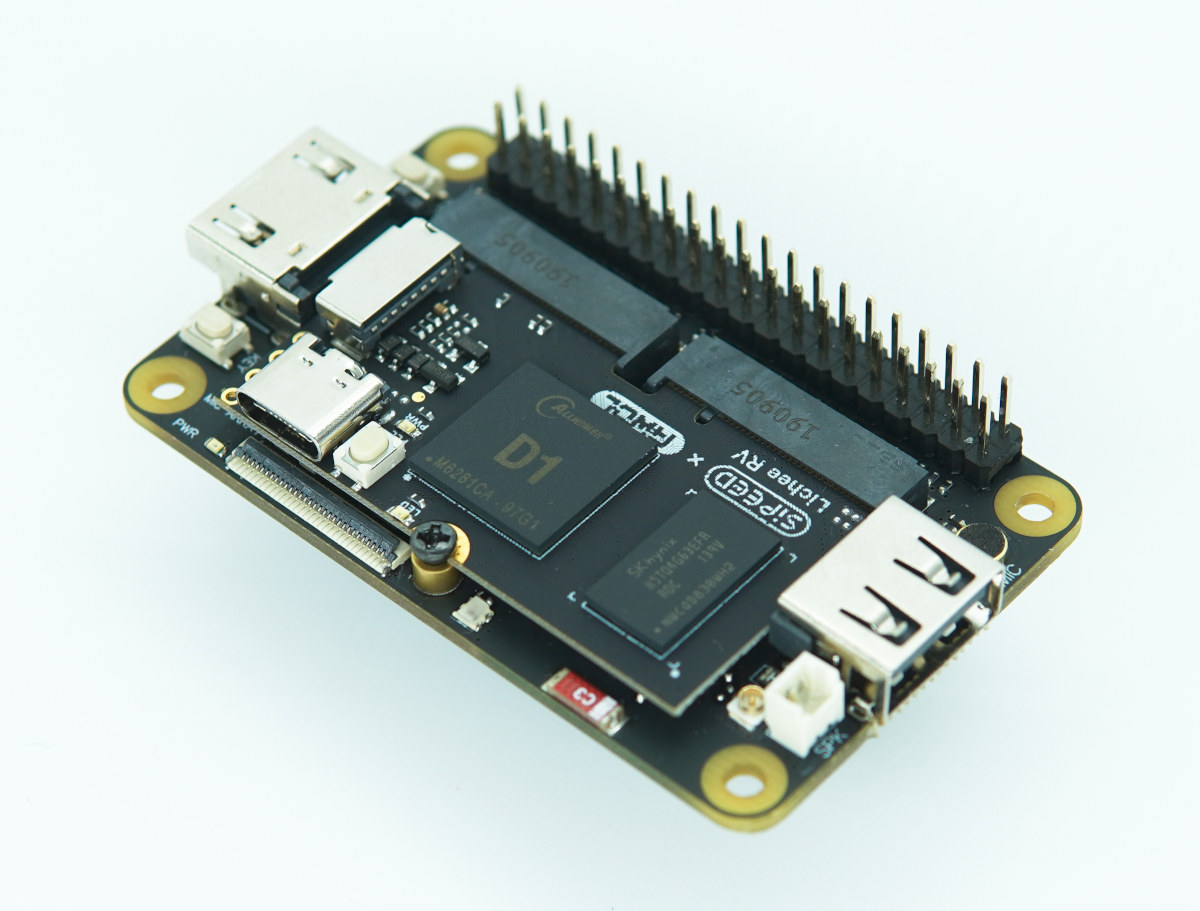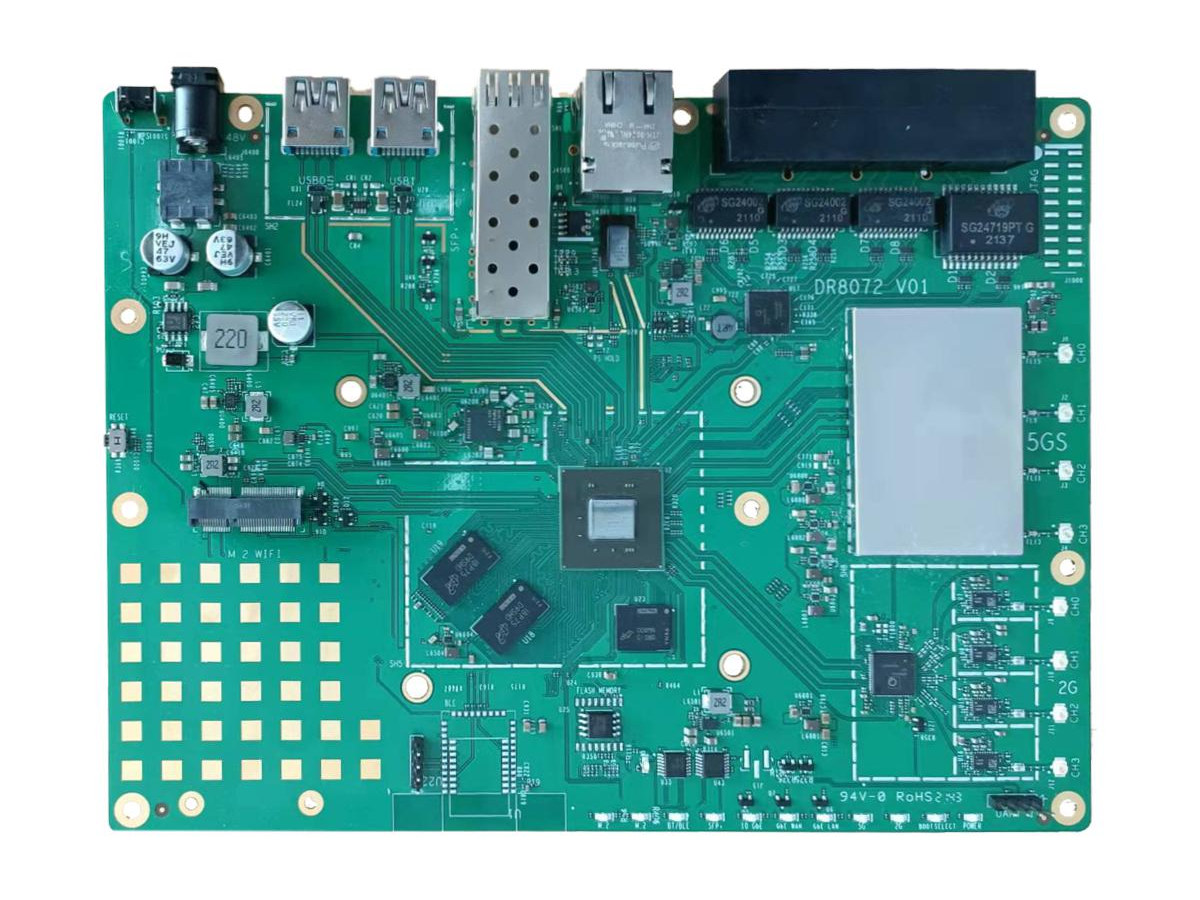Banana Pi BPI-R2 Pro is an update to the Banana Pi BPI R2 router board that replaces MediaTek MT7623A quad-core ARM Cortex-A7 processor with a much more powerful Rockchip RK3568 quad-core Cortex-A55 processor. The Banana Pi BPI-R2 Pro board looks very similar to the first generation R2 board with the same dimensions, 2GB RAM, HDMI & DSI display interfaces, five Gigabit Ethernet ports, one SATA port, two USB 3.0 ports, and one mPCIe socket, but it also adds one M.2 socket, support for MIPI CSI cameras, and extra storage with a 16GB eMMC flash. Banana Pi BPI-R2 Pro specifications: SoC – Rockchip RK3568 quad-core Arm Cortex-A55 processor @ 2.0 GHz with Mali-G52 GPU, 0.8 TOPS NPU System Memory – 2GB LPDDR4 (option for 4GB) Storage – Onboard 16GB eMMC Flash (option for 32 and 64GB), MicroSD card slot, 1x SATA III port, SPI flash for network boot Networking 5x Gigabit Ethernet […]
Qualcomm Wi-Fi 7 Networking Pro Series SoCs support up to 33 Gbps PHY rate, up to 2,000 clients
Qualcomm has announced the Wi-Fi 7 capable Qualcomm Networking Pro Series Gen 3 family designed for routers and access points with a PHY rate up to 33 Gbps with the quad-band 16-stream Networking Pro 1620 platform and offers some competition to the recently announced Broadcom WiFi 7 access point chips. The company will also offer the tri-band 12-stream Networking Pro 1220 with up to 21.6 Gbps aggregated link rate, the quad-band 8-stream Networking Pro 820 capable of 16.5 Gbps PHY rate, and at the low-end of the scale, the Networking Pro 620 limited to 10.8 Gbps with three bands and six streams. Qualcomm Networking Pro 1620 (IPQ9574) platform specifications: CPU – Quad-core Arm Cortex-A73 @ 2.2 GHz System Memory – DDR3L, DDR4 16/32-bit Storage – eMMC, NAND, Serial NOR, SD/eMMC Networking Wired – 6 Port Integrated Ethernet Switch 4 x 2.5 GbE + 5 GbE + 10 GbE Wireless Wi-Fi […]
MangoPi MQ Pro – A $20 RISC-V alternative to Raspberry Pi Zero W
MangoPi MQ Pro is an Allwinner D1 RISC-V SBC that offers an alternative to Raspberry Pi Zero W with the same form factor, and most of the same features including WiFi and Bluetooth connectivity The board has been in the works for several months, but the MangoPi MQ Pro board can now be purchased for around $20 on Taobao with 512MB RAM, and I’d expect it to show up on Aliexpress and/or Seeed Studio within the next few weeks. MangoPi MQ Pro specifications: SoC – Allwinner D1 C906 RISC-V processor @ up to 1GHz with HiFi4 DSP, G2D 2D graphics accelerator System Memory – 512MB or 1GB DDR3L Storage – MicroSD card socket Display – mini HDMI 1.4 port up to 1080p60 or 4Kp30, 20-pin MIPI DSI, CTP, LVDS FPC connector Camera I/F – 24-pin DVP/RGMII connector Audio – Audio out pads Networking 2.4Ghz 802.11b/g/n WiFi 4 and Bluetooth 4.2 […]
RISC-V or Arm? This tiny 4x4cm Linux board with WiFi offers both options
Last fall, we wrote about Allwinner D1s/F133-A RISC-V processor and the upcoming MangoPi MQ1, a tiny 4x4cm board based on the processor. The board is not for sale, but we have more details, and the company is also working on an Arm version equipped with Allwinner T113-S3 dual-core Cortex-A7 processor that is pin-to-pin compatible with F133-A SoC. The Allwinner F133-A board will finally be called MangoPi Nezha-MQ, or MangoPi MQ for shorts, and come with 64MB on-chip RAM while the Allwinner T113-S3 board, with 128MB on-chip RAM, will be named MangoPi MQ-Dual. Both are fitted with a Realtek RTL8189-based Wi-Fi module, offer display and camera interfaces, two USB-C interfaces, and headers for GPIOs. MangoPi MQ RISC-V or Arm Linux board MangoPi MQ/MQ-Dual specifications: SoC (one or the other) MangoPi MQ – Allwinner D1s/F133-A 64-bit RISC-V processor @ 1 GHz with 64 MB DDR2 MangoPi MQ-Dual – Allwinner T113-S3 32-bit dual-core […]
Orange Pi R1 Plus LTS sells with metal enclosure for $35.99
Shenzhen Xunlong Software previously launched the Orange Pi R1 Plus LTS router board powered by Rockchip RK3328 quad-core processor last November for $27.99 on Aliexpress. As expected, albeit with some delays, the company has now introduced a metal enclosure for the Orange Pi R1 Plus LTS board transforming it into a complete router or gateway. You can get it as part of a kit for $35.99 plus shipping, or if you’ve already purchased the board previously, get the enclosure only for $9 plus shipping. Orange Pi R1 Plus LTS router/gateway specifications: SoC – Rockchip RK3328 quad-core Cortex-A53 @ 1.5 GHz with Arm Mali-450MP2 System Memory – 1GB LPDDR3 RAM Storage – MicroSD card slot, 16 MB SPI flash Connectivity 2x Gigabit Ethernet via YT8531C Ethernet PHY and RTL8153B USB 3.0 to Ethernet chip; both tested by the company up to 945 Mbps Tx and 963 Mbps Rx On-board WiFi is not […]
NanoPi R2C Plus dual GbE router board adds 8GB eMMC flash
NanoPi R2C Plus is a variation of NanoPi R2C dual Gigabit Ethernet SBC powered by a Rockchip RK3328 processor that adds an 8GB eMMC flash for storage and replaces a 10-pin 2.54mm pitch I/O header with an 8-pin 1.25mm pitch header. FriendlyELEC introduced the NanoPi R2C last August as a lower-cost version of NanoPi R2S replacing Realtek RTL8211E Gigabit Ethernet transceiver with a Motorcomm YT8521S chip for availability and pricing reasons. NanoPi R2C Plus is just an evolution of the original design. NanoPi R2C Plus specifications: SoC – Rockchip RK3328 quad-core Cortex-A53 @ 1.5 GHz with Arm Mali-450MP2 System Memory – 1GB DDR4 RAM Storage – 8GB eMMC 5.1 flash, MicroSD Slot, SPI flash footprint Connectivity 1x Gigabit Ethernet (WAN) up to 941 Mbps (measured) via MotorComm YT8521S Gigabit Ethernet transceiver 1x Gigabit Ethernet (LAN) up to 941 Mbps (measured) via Realtek RTL8153B USB 3.0 to Ethernet controller USB – […]
Sipeed Lichee RV RISC-V module gets $5+ carrier board with HDMI and USB ports, optional WiFi
Sipeed introduced the Lichee RV Allwinner D1 Linux RISC-V board going for just $17 with 512MB RAM last month. While with a USB-C port it could be used as a standalone part, its dual M.2 connector makes it more like a module and we noted a tiny carrier board was in the works at the time. The baseboard is now available and known as the Lichee RV Dock adding HDMI and USB ports, as well as a 40-pin GPIO header for just $5, or $8 if you’d like to get Wi-Fi 4 and Bluetooth 4.2 connectivity through a Realtek RTL8723DS module. Sipeed Lichee RV Dock specifications: Supported system-on-module (SoM) – Lichee RV module with Allwinner D1 RISC-V processor @ 1 GHz, 512MB DDR3, MicroSD card slot, and USB Type-C OTG port Storage – Optional SPI flash Display interfaces HDMI port up to 4Kp30 Optional RGB interface for up to 720p30 […]
Qualcomm IPQ8072A networking SBC supports dual 10GbE, WiFi 6
DR8072 V01 is a networking SBC based on Qualcomm IPQ8072A communication processor, with two 10GbE interfaces, one through an SFP cage and the other through an RJ45 connector, plus four Gigabit Ethernet ports, and 4×4 MIMO WiFi 6 connectivity (AX3700). Based on Qualcomm AP.HK09 reference design, the board follows Wallys Communications’ DR8072A embedded router board introduced earlier this year, also based on Qualcomm IPQ8072, but equipped with two 2.5 GbE interfaces and WiFi 6 connectivity. DR8072 V1 specifications: SoC – Qualcomm Atheros IPQ8072A quad-core Arm Cortex-A53 @ 2.2 GHz part of Qualcomm Networking Pro 1200 Platform System Memory – 512MB DDR4 2400MHz 16-bit interface (option up to to 2GB RAM) Storage – 8MB NOR flash, 256MB NAND flash Networking Wireless On-board 4×4 2.4GHz MU-MIMO OFDMA 802.11b/g/n/ax, max 17dBm per chain, up to 1147Mbps On-board 4×4 5GHz MU-MIMO OFDMA 802.11a/n/ac/ax, max 17dBm per chain, up to 2475Mbps Frequencies – 2.412 to […]


